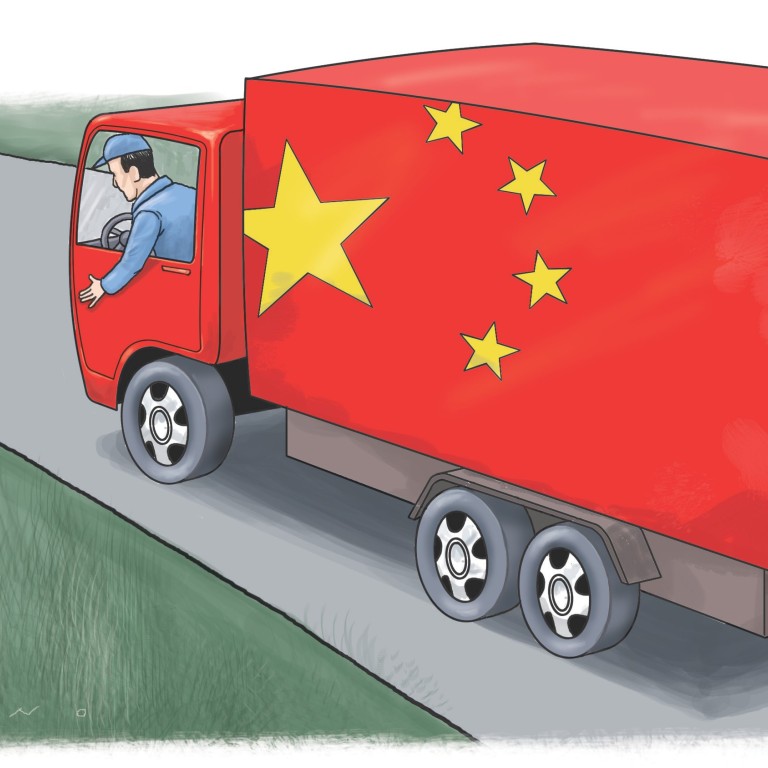
Don't believe the hype over Third Plenum
Chang Ping says no amount of media and public cheerleading for the Communist Party's third plenum can drown out the fact economic reforms cannot go far without political change
Leaders of Western countries may well be jealous at the excited attention being heaped on a plenary meeting of the Communist Party's Central Committee, which starts this weekend. Ever since the date of the third plenum was announced, it has been the top news item in mainland newspapers big and small. There is no end to the upbeat coverage, it seems.
Once again, a people starved of hope are going overboard with their expectations of change.
No one seems to doubt Beijing will roll out effective reform in many sectors and areas at the policy meeting, guiding China towards fairer and more efficient development.
In the run-up, Yu Zhengsheng , the fourth-ranked member of the Politburo Standing Committee promised "unprecedented" reforms. "The reforms this time will be broad, with major strength, and will be unprecedented," Xinhua quoted the chairman of the Chinese People's Political Consultative Conference as saying. "They will strongly push forward profound transformations in the economy, society and other spheres."
Just this week, party general secretary Xi Jinping said that "reform and opening up are a never-ending process" and promised a "comprehensive plan to give overall instructions on the widely deepened reform and opening up".
Hype comes easily to politicians, particularly those in the Communist Party. Words like "unprecedented" and "never-ending process" may seem impressive, but every generation of party leaders uses them to dress up their pet "revolution" and "reform movement". Ignore the hyperbole unless you want to hypnotise yourself.
The media buzz was fuelled largely by a reform road map published by the State Council's Development Research Centre. The so-called "383 plan" sets out the "three-in-one train of thought, the eight key areas and the three projects of reform". According to the report, the key to successful reform is "the proper handling of the ties between the government and the market", and reforms must be carried out in areas including the administration, state assets, land and finance.
One author of the report, Liu He , director of the Central Leading Group on Financial and Economic Affairs and a deputy director of the National Development and Reform Commission, has become a star. His previous writings were dug up. In Liu, people discover, they have a scholar with liberal leanings. To liberal intellectuals and the media, here finally is someone with high-level government connections who is "one of them".
To me, this report only makes clear the absurdity of Chinese politics today.
Almost all the issues raised in the report were of national concern, affecting the lives and livelihoods of over a billion people and the future of the country. Yet in place of a discussion, we have policy recommendations that come in the form of a "petition to the emperor", as they did in the days of feudal China.
Individuals and citizens' groups in today's China have no voice in policy-making, nor any way to monitor the authorities. All we do is wait obediently for our wise and benevolent leaders to select the best recommendations to turn into "good policies".
The decision-making process may be opaque, but when these long-awaited "good policies" are finally bestowed on us, a grateful media is only too happy to celebrate. Its repeated calls for procedural justice and transparency in government are all but forgotten.
Of course, many people will agree that having no say in the decisions that affect them is disappointing. Nevertheless, they add, if the policy plan is a good one, why shouldn't they be happy about it?
But how good is "good"?
First of all, the report is only a proposal. But even if we set that aside, we can see that the report's recommendations touch on more than economic problems - in other words, political reform cannot be avoided. So, what do our leaders think about political reform?
There was a time when people believed Xi had no choice but to undertake reform. In the run-up to the leadership transition last November, a series of party documents that left out routine mention of Maoist thought raised hopes for change; so did Xi's talk of respecting constitutional rule, after he became president. But that was then.
Xi dashed these hopes by saying the experience of 30 years after the introduction of reform and opening up could not invalidate the experience of the 30 years before the policy.
So far, we've seen how government media repeatedly attacked constitutional rule and tried to censor online debate in the name of fighting rumours. Prominent citizen rights activists Xu Zhiyong and Wang Gongquan have both been arrested, while the so-called "10 gentlemen of Beijing", who took to the streets to demand top government officials declare their personal assets, have been jailed.
Most recently in Jiangxi , anti-corruption activists Liu Ping , Wei Zhongping and Li Sihua were in court to answer a charge of illegal assembly, among others.
A goal of the third plenum is to normalise the economy. In mainland China, such normalisation is a mammoth task. But how far can economic reform go without political reform?
Deng Xiaoping himself repeatedly stressed that reform of the economy could not go far without reform of the political system. Wen Jiabao often said the same: political structural reform must succeed for economic reforms to work. But in the glitter of the third plenum, this long-standing bottleneck no longer seems to be a problem. Can such a miracle be possible?
